by Vitoria Velez
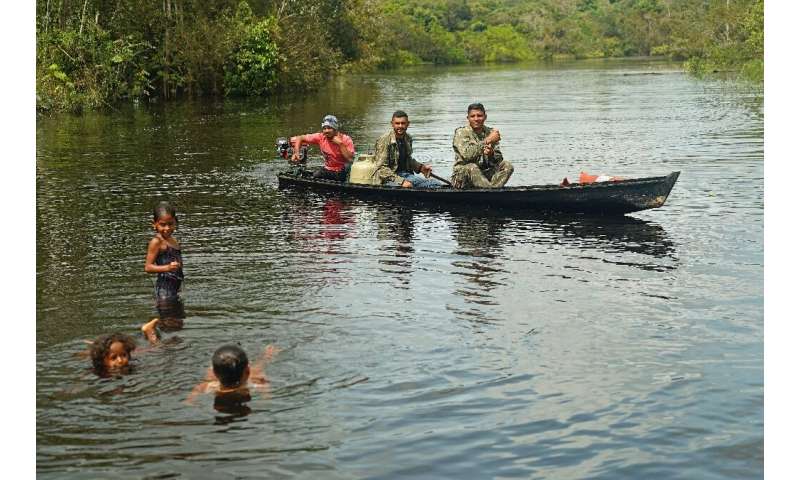
Fishermen and children are seen in the river in Bauana, a village in the heart of the Brazilian Amazon, on March 14
Maria dreams of being the next Greta Thunberg. Kelita is studying in the first-ever university program in the Amazon. Fabio is helping his family do its part to fight climate change through sustainable agriculture.
A new generation of young Brazilians from the Amazon region are seeking to reshape the fight for the world's largest rainforest, which is shrinking before their eyes.
The first Youth of the Forest Conference recently brought together 287 of them to discuss what they can do to fight rampant wildfires, deforestation from logging, farming and mining, and apathy about the rapid loss of one of Earth's most important natural resources.
AFP profiles three of them.
Amazonian Greta
Maria Cunha, 26, is from Sao Raimundo, a small village in a protected reserve whose residents live off fishing and gathering.
A volunteer forest ranger with a degree in sustainable production techniques, she says saving the Amazon will require working with the people who know it best: its inhabitants.
"We are the guardians of the forest. We live here and depend on the rainforest for practically everything. If we don't protect our forests, how will we live?" she added.
She is already seeing the impact of climate change at home, she said: hotter weather, lower water levels on the rivers, fewer fish.
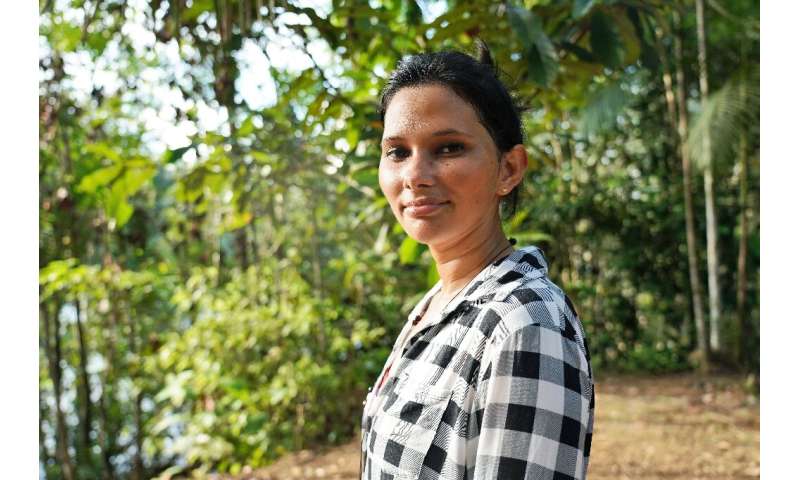
Maria dreams of being the next Greta Thunberg. Kelita is studying in the first-ever university program in the Amazon. Fabio is helping his family do its part to fight climate change through sustainable agriculture.
A new generation of young Brazilians from the Amazon region are seeking to reshape the fight for the world's largest rainforest, which is shrinking before their eyes.
The first Youth of the Forest Conference recently brought together 287 of them to discuss what they can do to fight rampant wildfires, deforestation from logging, farming and mining, and apathy about the rapid loss of one of Earth's most important natural resources.
AFP profiles three of them.
Amazonian Greta
Maria Cunha, 26, is from Sao Raimundo, a small village in a protected reserve whose residents live off fishing and gathering.
A volunteer forest ranger with a degree in sustainable production techniques, she says saving the Amazon will require working with the people who know it best: its inhabitants.
"We are the guardians of the forest. We live here and depend on the rainforest for practically everything. If we don't protect our forests, how will we live?" she added.
She is already seeing the impact of climate change at home, she said: hotter weather, lower water levels on the rivers, fewer fish.

Maria Cunha, 26, is a volunteer forest ranger with a degree in sustainable production techniques
Animals are feeling the impact, too.
"They come into our yard looking for food because they can't find enough, because of fires and deforestation," she said.
She fears it could "all disappear in the near future" if others her age don't act.
She sees Thunberg, the 17-year-old Swedish climate activist, as a role model.
"I dream of being the next Greta, an empowered girl fighting for her rights," she said.
Prodigal daughter
Kelita do Carmo left the rainforest at 13 years old, moving to the city of Manaus, to work as a nanny.
Eight months later, she was back home in Bauana, a village of stilt houses on the banks of the Jurua River.
"I learned to appreciate things here," she said.
Now 22, she is studying to become a teacher, part of the first-ever degree program offered in the rainforest.
The program aims to supply teachers to far-flung rainforest villages. It is a joint project by the Amazonas Sustainable Foundation—which sponsored the Youth of the Forest Conference—and Amazonas State University in Manaus.
It includes coursework on sustainable agriculture and the environment.
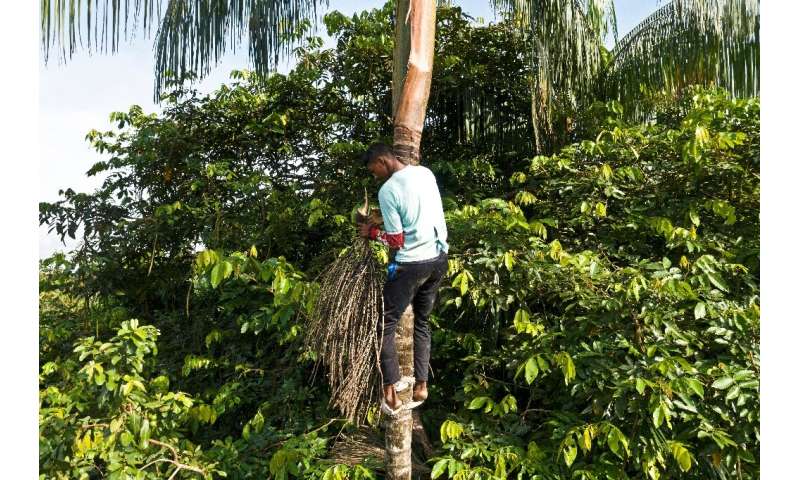
Animals are feeling the impact, too.
"They come into our yard looking for food because they can't find enough, because of fires and deforestation," she said.
She fears it could "all disappear in the near future" if others her age don't act.
She sees Thunberg, the 17-year-old Swedish climate activist, as a role model.
"I dream of being the next Greta, an empowered girl fighting for her rights," she said.
Prodigal daughter
Kelita do Carmo left the rainforest at 13 years old, moving to the city of Manaus, to work as a nanny.
Eight months later, she was back home in Bauana, a village of stilt houses on the banks of the Jurua River.
"I learned to appreciate things here," she said.
Now 22, she is studying to become a teacher, part of the first-ever degree program offered in the rainforest.
The program aims to supply teachers to far-flung rainforest villages. It is a joint project by the Amazonas Sustainable Foundation—which sponsored the Youth of the Forest Conference—and Amazonas State University in Manaus.
It includes coursework on sustainable agriculture and the environment.

Sixteen-year-old Fabio Gondim, who lives in the community of Bauana, picks acai fruit
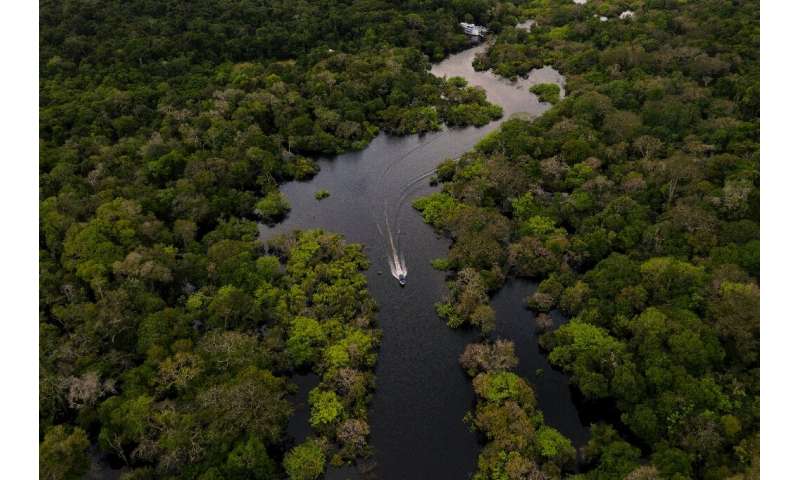

A boat speeds down the Jurura River in the Brazilian Amazon
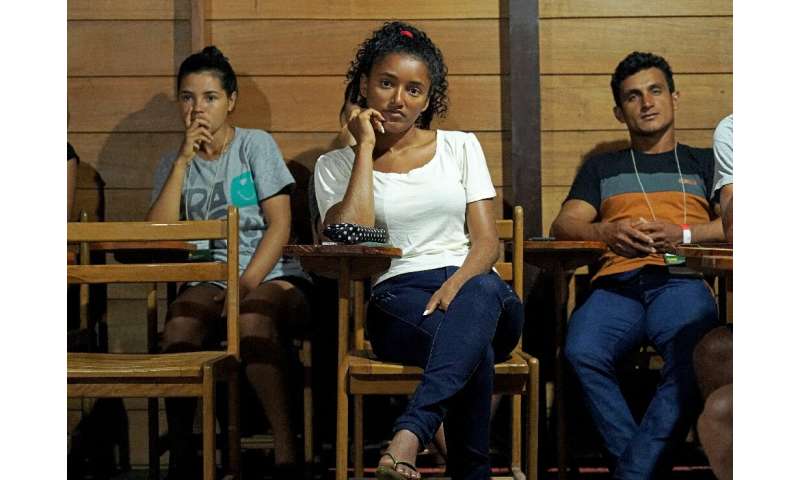

Kelita do Carmo (C) attends class as part of a program offered by the Amazonas Sustainable Foundation
Farmer, math whizz
Fabio Gondim dreams of becoming a math teacher one day.
At 16 years old, he is already an expert farmer.
He helps his family harvest acai, a fruit in high demand for its health properties, and cassava, which they use to make flour.
A natural athlete, he can scale a 10-meter (33-foot) acai palm in a flash.
"It never crossed my mind to leave" the rainforest, he said.
"I wouldn't want to live in the city. Everything is easier here. The forest provides our food and our income."
He is helping his family adopt more sustainable farming techniques, such as clearing fewer trees to farm cassava.
"We have to keep fighting for the Amazon," he said.
"It's what's sustaining the world."
Explore furtherSimulations show parts of Amazon could switch from carbon sink to carbon source by 2050
© 2020 AFP
No comments:
Post a Comment